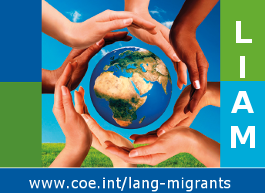Citizenship
The legal benefits of citizenship confer the same rights and responsibilities on migrants as on other citizens. It is therefore important that the available pathways and specific requirements concerning long-term residence and citizenship are made known and transparent to migrants wishing to avail of these opportunities as early as possible. Conditions vary across states in terms of, for example, length of legal residence, extent of involvement in society, degree of language proficiency and knowledge of the society required. Unduly demanding measures and long delays may discourage many migrants who might wish to do so from applying for citizenship.
The current debate on integration and the growing tendency in a number of countries to introduce specific measures or requirements offer a valuable opportunity for public dialogue and awareness raising about the fundamental nature of ‘citizenship’ and its role in facilitating integration, which is a two-way process with roles and responsibilities for citizens of the receiving state as well as migrants. This implies going beyond the legal aspects of citizenship (which are addressed in specific international instruments, including those of the Council of Europe) and examining the broader notion of ‘participation’ linked to the exercise of active democratic citizenship.
Building on its experience of the European Year of Citizenship through Education (2005) and its intensive work on a values-based approach to participation in civic life, the Council of Europe has elaborated a Charter on Education for Democratic Citizenship and Human Rights Education, accompanied by a Recommendation of the Committee of Ministers on the implementation of the measures contained in the Charter. These (non-binding) instruments promote an approach to education for democratic citizenship for all members of society (citizens and non-citizens) that leads to the acquisition of the knowledge, skills, understanding and attitudes which empower people to exercise, and where necessary defend, their democratic rights and responsibilities in society. The texts set out an inclusive approach to democratic citizenship that promotes social cohesion, intercultural understanding and respect for human dignity and values diversity.
The development of the kinds of knowledge, attitudes and skills required for residence and citizenship purposes is a lifelong learning process for ALL members of society regardless of their official status. In the specific case of migrants, integration courses can usefully prepare them for essential independent acquisition beyond the course by providing appropriate information, awareness raising, practices and activities designed to foster their active participation and empowerment. This concept of (education for) citizenship does not lend itself to standard forms of evaluation.
In this broader perspective of citizenship viewed as participation, and bearing in mind a growing tendency in some countries to accept dual nationality (and acknowledge plural identities), naturalisation cannot be the ultimate objective. It is a significant choice for those who request it in the wider context of an ongoing process of integration characterised by increasingly active participation in society and a stronger sense of belonging, irrespective of whether they are seeking citizenship. Migrants need access at the earliest possible stage to civic, political, economic, social and cultural life as they build on and enrich their existing citizenship attributes and experiences as part of a developmental process which may include ‘legal’ citizenship but essentially leads to the kind of active participation in the life of society which is essential for integration.
This process of participation is facilitated by language courses that are sufficiently targeted and flexible to accommodate the diversity of migrants’ capacities and needs. Where a language test is linked to the granting of citizenship it should be borne in mind that there is no evidence of a close link between a specific level of language proficiency and the exercise of citizenship. The ongoing process of integration can advance even with limited language skills while migrants’ proficiency develops over time through language use in real-life activities. Therefore, rather than setting language requirements as a precondition, citizenship measures need to reflect the reality that communication skills are acquired and refined as a direct result of active involvement in society.
JS



